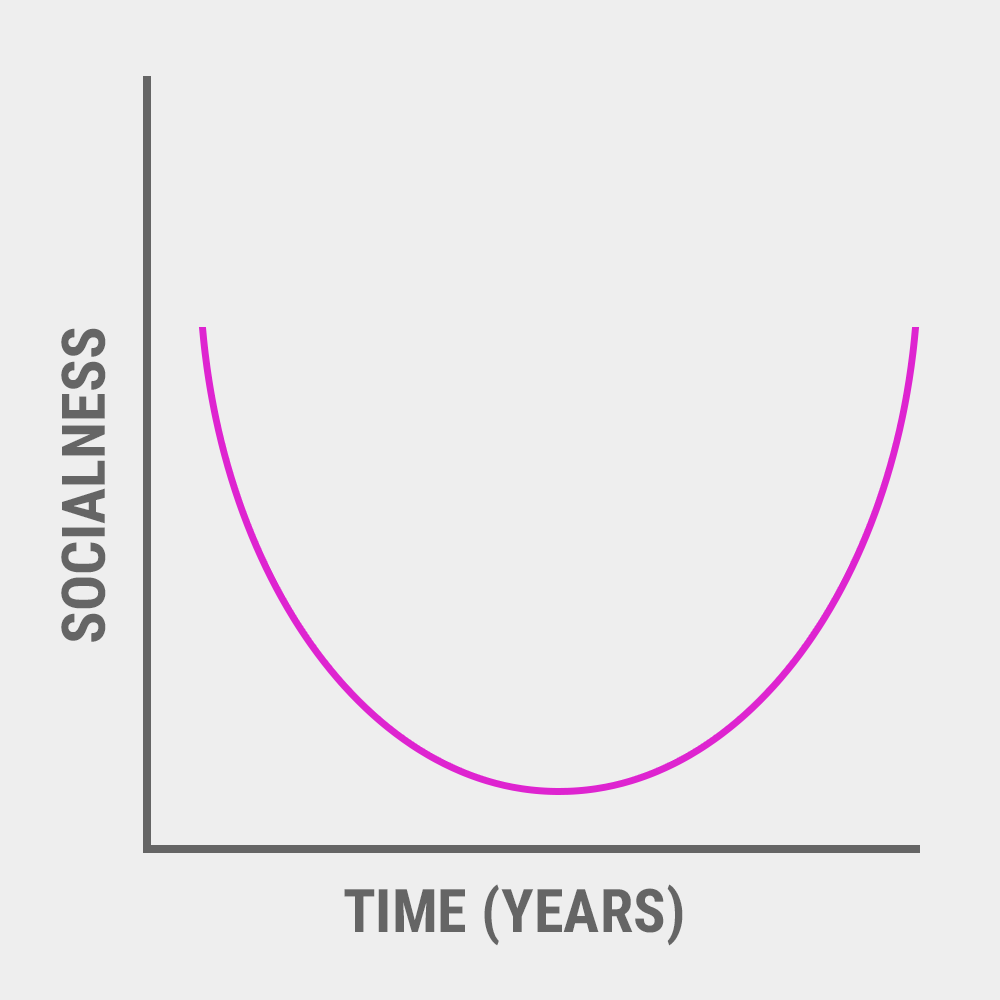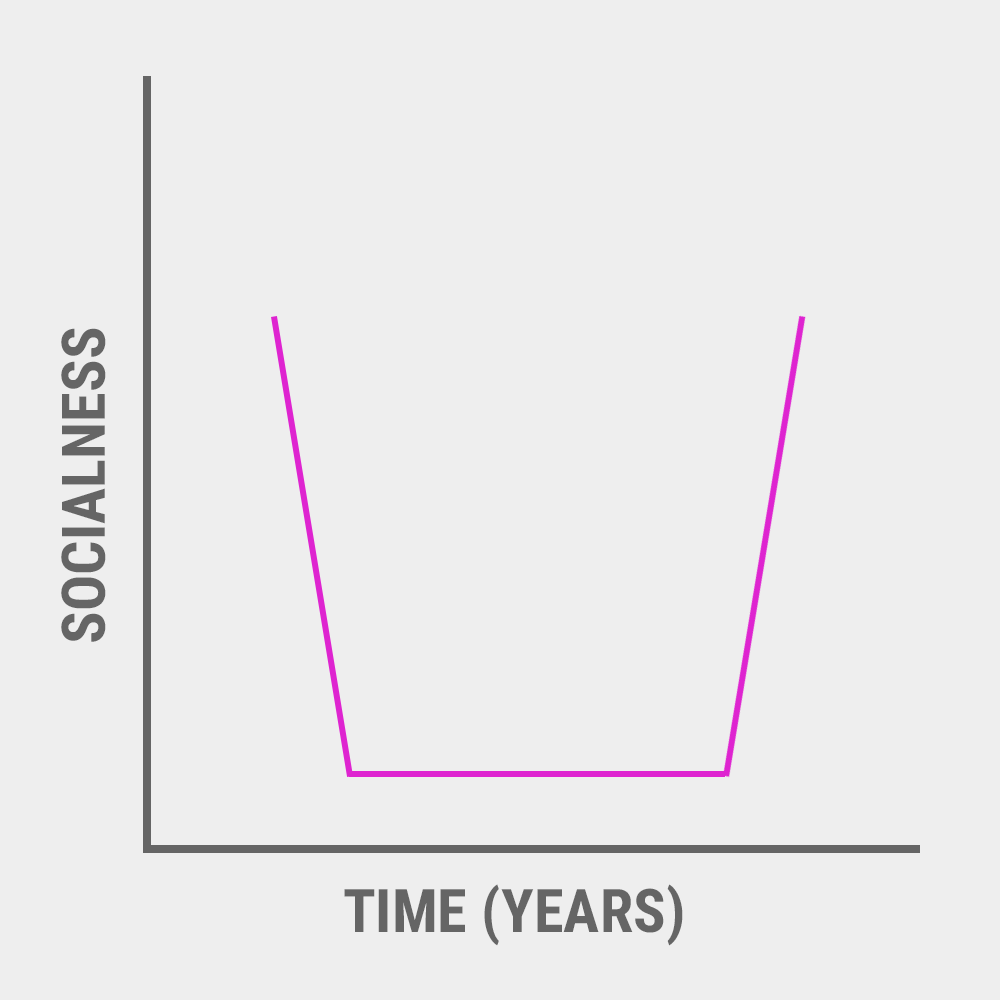Young writers, directors, and actors tend to seek representation as if it will solve all of their problems. They think they’ll sit by the pool taking calls for work once they sign with an agent, manager, or lawyer. In fact, many people come to Hollywood with “find an agent” at the top of their to-do list.
Unfortunately, it doesn’t work like that. I know lots of creatives with experience on big pictures and popular shows who still have to sell themselves. These are people with high Q scores and they still have to be social and network all over town to keep working.
Young writers, directors, and actors seek agents as if it will solve all of their problems. It doesn’t work like that. Share on XSo while agents, managers, and lawyers are a step in the right direction, they won’t guarantee you’ll have a successful career. That’s still up to you.
Role of Agents, Managers, and Lawyers
This all begs the question: If they don’t help you find work, what the hell do agents, managers, and lawyers do?
- Agents will guide your career and help you sell yourself to executives at a studio and a network. Agents know how to sell in the industry. In California, they are the only ones who can set a meeting for you. Managers and lawyers are barred from soliciting work for you by law.
- Managers help you develop your work and (for lack of a better word) your brand. They make sure your product (whatever you do – write, act, direct, etc.) doesn’t suck and is sellable.
- Lawyers help you negotiate deals and prevent you from getting screwed. Agents can also do this by statute, so you might not need both an agent and a lawyer.
Some people have two people on their support team. Others have three. It depends on your needs.
A good agent and manager will guide you to the places that are right for you. If you have a knack for family Christmas stories, your agent will put you in rooms with people at Hallmark or whoever is buying Christmas movies. If you can write the hell out of lawyer/cop/SUV dramas, your agent will set you up with people at USA Network.
Distributors, studios, networks, OTTs, and other buyers in the industry produce a grid that lays out what they’re looking for in terms of content. Good agents and managers (and sometimes lawyers) receive these documents and use them to put their clients in the right rooms.
At one point, Warner Bros was looking for movies with strong female themes. (At the time you couldn’t make content with female driven content . Times have changed, thankfully, but there was a point where no one would consider it.) My ex-wife was a development executive at the time who wanted to see more strong female characters in movies. When she saw that Warners was looking for the same thing, she worked with them to develop Mr. and Mrs. Smith, which got made, did well critically and made a lot of money for the studio. It came straight from Warner Bros’ declaring that they wanted to make spy movies and movies with strong women.
But that doesn’t mean your representation can do everything.
Getting an agent won’t let you sit on your damn sofa and wait for calls. You have to be involved in the process. You have to remain social and integrated in the industry. This applies throughout your entire career. If you want to work, you have to be social.
The Social Curve
Hollywood is built on relationships. Your agent, manager, and lawyer can’t build them for you. They can talk you up and make introductions, but they can’t build your network. You have to do that part on your own by connecting with people and staying integrated.
How social do you need to be? Your “socialness” is basically an inverse bell curve.

You have to be super social in the beginning of your career. This is when you desperately need work to make a name for yourself. So you network like crazy, make lots of “show friends,” and constantly reinforce that network.
You’ll back off on the socializing during the middle of your career. This is when you’ve built a reputation, people know what you can do, and work flows in steadily. You’ll rely on your representation the most during this period. This will last three to five years at most (if you are lucky it will be longer, but don’t count on it).
As your career wanes, you’ll dive back into hardcore networking as you compete against the hot new up-and-comers.
This curve is true for writers and directors. Actors follow a similar path, but there are sharper jumps because their careers change more dramatically.

Successful writers, directors, and actors do a lot of work to stay connected. They talk a lot. They text each other. They like each other’s stupid Facebook memes.
The best networkers know how to forge connections in a way that doesn’t feel artificial. Their career-focused relationships are organic, seamless, friendly, and genuine.
But at the same time, they know that each relationship is a potential work opportunity. They constantly collect information about projects and people. They keep their ears open for projects they can get on or who could help their career.
At some point, you will come across a super social person who knows everyone and gets more offers than they can handle themselves. Make friends with this person and stay connected. They can be a tremendous resource.
When (not If) you stop being social, your career will stop growing, whether or not you have an agent, manager, or lawyer. Full stop. Representation can’t solve a lack of networking.
And if you find yourself in a low spot on that curve (meaning your agent is getting you the bulk of your work), keep networking. Your career will wane eventually. It’s bloody inevitable. Keep that network healthy so you have lots of friends when you start to downslide.
Remember this: In Hollywood, your social life is your business.
Finding Representation
Does this all mean you actually don’t need representation? No, not at all. Agents, managers, and lawyers perform valuable services.
You need an agent to get your material in front of the right people. Most producers and managers have “no solicitation” policies because there’s too much risk looking at other people’s work that is not represented by an agent or lawyer. You need an agent to solicit your material to executives on your behalf.
You need a manager to judge your work as it relates to the market and to help you improve. They won’t sell for you, but they’ll help turn you into a better version of yourself that’s sellable.
Lawyers make sure you don’t get fucked. It’s that simple. They look at everything before you sign so you get paid and don’t get into bed with the wrong people.
These people play an important role in your career, but they are hard to find. They don’t just take on anyone. They work on commission, so they won’t work with you unless they are sure you have something to sell. Otherwise you will just be a drain on their time.
Getting their attention is a task of its own. You can do things that make them track you down. The best way is to enter and win awards and contests. Submit your best material to contests all over the world. Agents, managers, and lawyers pay attention. If they see your name pop up, they’ll find you. They like these sources because it means somebody else has already vetted your work.
To that end, make sure you connect your social profiles to your work so an agent can make sure the Sue Smith in the profile is the woman who won the recent Slamdance script competition – make it easy for them. Tag you profile with the title of your work. Also, make sure your profile is PUBLIC so it can be seen and don’t be an idiot with what you put or like on your profile. They will get an impression of you from your public profile.
You could also write, produce, and direct your own content. The web is a big help – especially social media and YouTube. Use them to demonstrate that you can deliver quality content and find an audience.
Beyond Networking
In this article (and others), I’ve harped on the importance of building a healthy network. But that doesn’t mean that’s all you have to do. You still have to make time to work on your craft.
For instance, if you are not writing every single day, then you aren’t a writer. You can’t write every minute of the day (four to six hours is the most anyone could do well), but it still has to happen every day. It has to be a significant part of your life. Figure out how much you can write and when you are most productive. Use the rest of the day to read, network & watch.
Ron Bass (screenwriter and film producer) is my favorite example of someone who busted his ass for his passion. He wrote from 5 AM to 9 AM every day before going to work as an entertainment lawyer. He has some massive credits to his name.
So here’s the formula for a successful career: Let your representation do their thing, continue to network yourself (sell) to the industry, and don’t forget to develop your craft.






